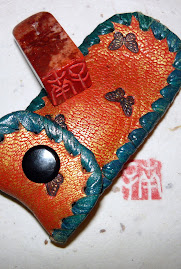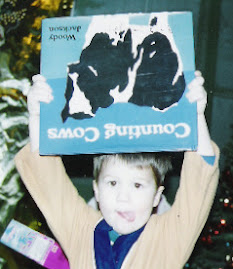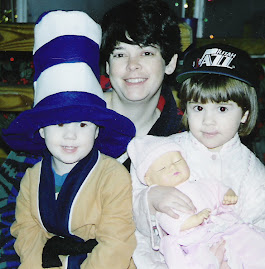Even when they are deprived in every conceivable way,
children have the toughness to survive.
It is the indomitability of their own spirits that will save them.
This is a message that children should hear.
Maurice Sendak
Helpless. Hopeless. Terrified.
Wondering if any words can ever capture the intensity of some experiences, and the feelings they evoke. These words were used on C-Span 2's Book TV yesterday morning. The words were used by a combat doctor to describe the diagnostic basis for determining Post Traumatic Stress Disorder in war (PTSD). They are the same words that apply to the feelings of children who are abused or neglected. It isn't a reach to suggest that abused and neglected children share other things in common with our Warriors besides PTSD.
Our troops earn the designation Warriors, and they deserve the title. Each has "taken part or experienced in conflict" horrendous events that burn themselves into the body, change the brain, drain the emotional roots of the psyche. So have maltreated children.
We wouldn't think of calling Warriors "Victims" or "Survivors" as we do children who are maltreated. Maybe it's time to change our perspective? Maybe it's time to stop feeling sorry for these children and recognize and honor their strengths as we do with our soldiers? Maybe if we look a little closer we can see the children as front line soldiers on a war against child abuse and neglect? After all, they know the enemy. They know the terrain. They know how to fight for survival.
If you know a child fighting his or her own war against child maltreatment and feel "helpless, hopeless and terrified" by what you see as your own inability to do anything to make a difference without possibly making a bad situation worse, here's a weapon you can give him or her to relieve some of the stress associated with child abuse and neglect.
The National Center for Post Traumatic Stress Disorder provides the following as ways to use breathing techniques known to reduce stress levels with children suffering from PTSD.
"Make a game of it:
• Blow bubbles with a bubble wand and dish soap
• Blow bubbles with chewing gum
• Blow paper wads or cotton balls across the table
• Tell a story where the child helps you imitate a character who is taking deep breaths."
...Or just listen when a child needs to talk. That can make all the difference!
Wondering if any words can ever capture the intensity of some experiences, and the feelings they evoke. These words were used on C-Span 2's Book TV yesterday morning. The words were used by a combat doctor to describe the diagnostic basis for determining Post Traumatic Stress Disorder in war (PTSD). They are the same words that apply to the feelings of children who are abused or neglected. It isn't a reach to suggest that abused and neglected children share other things in common with our Warriors besides PTSD.
Our troops earn the designation Warriors, and they deserve the title. Each has "taken part or experienced in conflict" horrendous events that burn themselves into the body, change the brain, drain the emotional roots of the psyche. So have maltreated children.
We wouldn't think of calling Warriors "Victims" or "Survivors" as we do children who are maltreated. Maybe it's time to change our perspective? Maybe it's time to stop feeling sorry for these children and recognize and honor their strengths as we do with our soldiers? Maybe if we look a little closer we can see the children as front line soldiers on a war against child abuse and neglect? After all, they know the enemy. They know the terrain. They know how to fight for survival.
If you know a child fighting his or her own war against child maltreatment and feel "helpless, hopeless and terrified" by what you see as your own inability to do anything to make a difference without possibly making a bad situation worse, here's a weapon you can give him or her to relieve some of the stress associated with child abuse and neglect.
The National Center for Post Traumatic Stress Disorder provides the following as ways to use breathing techniques known to reduce stress levels with children suffering from PTSD.
"Make a game of it:
• Blow bubbles with a bubble wand and dish soap
• Blow bubbles with chewing gum
• Blow paper wads or cotton balls across the table
• Tell a story where the child helps you imitate a character who is taking deep breaths."
...Or just listen when a child needs to talk. That can make all the difference!
Take care....Be Aware
Nancy Lee

















No comments:
Post a Comment